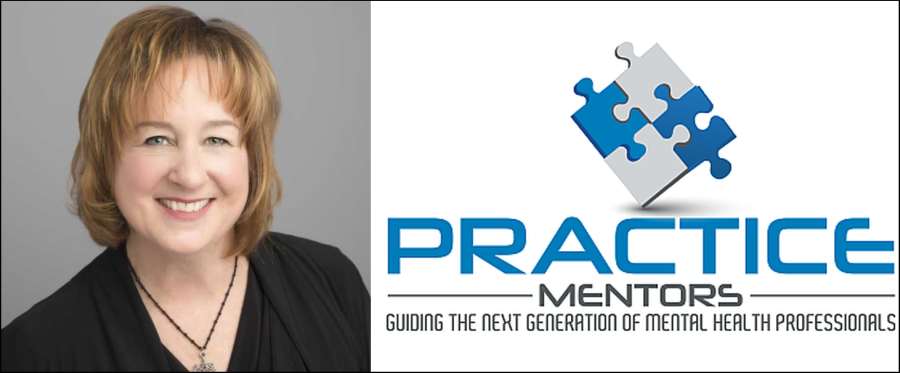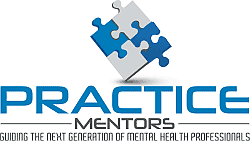Developing Effective Referral Sources

Today I'd like to talk with you about developing effective referral sources to keep your calendar full. We all like it when the phone rings and our appointment calendars stay full, don't we? And we all know that doesn't just happen all by itself. It takes a lot of work setting up multiple client-source channels and a lot more energy to do the necessary marketing work to make it happen. Before we get into the details let's clear some of the brush that's dirtying the landscape.
Why Do You Need Referral Sources?
Well, the straight answer is if you only have one client channel in place (self-pay, maybe?) and there's an economic down-turn, putting discretionary money in short supply, your client load is probably going to take a hit. If you're okay with that and can survive just fine on 50-80% of what you're accustomed to making then you can stop reading right now. If that highly probable scenario makes your stomach turn then you need to develop additional client-source channels to mitigate that financial drop. One of those channel options is a referral network.
Why YOU Need to Develop Your Referral Network
I can think of two reasons that you need to actively develop your referral network. One, it's not going to happen all by itself. If you put no effort into referral network development then you will get zero referrals. Period. Second, no one else is going to do it for you. If you did hire someone to go through the motions on your behalf you might get 5-10% of the results that you would have gotten had you done the work yourself. It just doesn't work to hire a stand-in. Besides, the message that sends is that you were too busy to be bothered to meet the right people.
Why Is Referral Network Development So Difficult?
Doing the work to develop a long-term referral network is actually very simple given the right goal, plan and tools. A lack of self-motivation and discipline are what makes it all feel so "difficult".
I Didn't Sign Up For This!
Yes, you did actually. No one ever told you that business development, or "marketing" if you prefer, was a part of running a mental health practice but it was always there waiting for you to figure it out! Whether you work under someone else's business umbrella, operate a solo practice of your own, or run a group practice, there is a business side to it all. It's a sin that we're not told about it earlier on in our preparatory walk but you know it now and there's no better time to get started than right now.
How Long Is This Going to Take??
A referral network is like a garden. You must first decide what to grow, get started, then take care of it until you no longer need it. So the answer is, how long will you be practicing?
Developing Effective Referral Sources: How Do I Do This?
Okay, so we've addressed some of the common questions that derail any good marketing effort, now let's jump into the how-to. You need three things to get started: a goal, a plan to accomplish it, and the right tools to keep the ship on course.
You Need a Goal
Let's begin with your goal. Think big but not so big that you can't accomplish anything before you retire. Your initial goal might be something like putting a referral network in place that produces 6 referral sources that send you new clients on a regular basis, within the next 6 months. Don't start with unattainable numbers in unrealistic time-frames or you just set yourself up for failure. Then, you need a plan.
Plan on Winning!
I'm a big fan of working things by the numbers. It takes a lot of the guesswork out of the project. If I know my numbers are accurate then I have good reason to believe that my outcome projections will be accurate.
For example, if I know that only 1 out of every 6 referral source targets that I cultivate will ever produce a stream of referrals for me then I know I need 6 prospect targets to get 1 referral source. If I want 6 producing sources (per my goal above) then I know I need a list of 36 doctors, psychiatrists, lawyers in order to get 6 or more active, long-term referral sources out of it. Make sense? It's just simple math. Once you have a goal, and know how many names you need on your prospect list it's time to build that list.
Building Your Prospect List
For the sake of simplicity let's say there are two ways to build your list. Let's run with the example above and say that you need 36 names on your list. You could buy a list from a list broker or sit down at your laptop and compile a list of target prospects by doing Google searches for prospects within a 10-mile radius of your office. These methods are quick and easy but all you really know about these people are that they are in the right profession and are close enough to refer people that are (probably) geographically close to you. Sounds good but you know nothing about their reputation, the quality of their operation or if you even want to be associated with them.
The second way to build your list is by selection. I know I want to identify 36 prospects and I think I want all of them to be general practitioners (MD's) and psychiatrists. Now all I need to do is meet these people and size them up in person. I want to determine if we "click". People do business with other people that they like and trust and that will never change; it's hard-wired in our DNA.
If you don't get a good feeling from the other party there's a high probability that you won't be excited about contacting them on a regular basis. If they don't take a shine to you then there will never, ever be any flow of referrals from them. There has to be a 2-way flow of good vibes before anyone makes your list.
This method will take a bit longer to develop but once you've done it you hold a list of 36 prospects, all of whom you've met and like, all of whom are more willing to take your call or respond to your emails. This list will experience less change than a list you bought or threw together from Google searches.
Prospect lists should be fluid documents. Whether you build your list in one sitting or add to it over a relatively short period of time to completion, the names on your list should change as you determine that a prospect on your list is simply not a good fit. More on that later.
How Do I Work This List?
With very few exceptions the people you want to meet are not coming to your free ceu events. You're going to have to go where they hang out to meet them. That means that you will need to go to meetings that they attend, or to their offices.
But These People Are Never Available!
Yep. That's another reason almost all of your peers give up or never even begin to actively build a referral network. And that is your opportunity to win!
Professionals that historically sequester themselves in their clinics and offices and rarely come out to say hello do so because they'd never get anything done if they did. The trick is to figure out how they communicate with the outside world and get on that track. This is where the fun begins (yes, it can be fun; success always is!) and I'll tell you all about it in our upcoming online course. Keep your eyes on our weekly newsletter for more details as they become available.
What Tools Am I Going to Need?
You'll need the following:
1. A way to track your target prospects on an on-going, long-term basis.
2. A set of well-branded business cards that screams professionalism.
3. An email address that doesn't end in "gmail.com", "yahoo.com" or any other free email account.
4. A solid website would help greatly to speak for you when you can't do it in person.
5. Professionally produced "leave-behinds".
I'll have a lot more detail about tools in the online course.
Online Course Coming Soon!
I wrote this post to get you started. Our plan is to turn this post into an online course with CE credit and it will contain a lot of helpful details that are not included in this post. So stay tuned for that and we'll help get you to the top.
Plan Smart. Be Safe. Serve Others.
Kathleen Mills, LPC-S, CEAP

Got An Opinion?
This post is my opinion based on almost 30 year practice as a mental health provider. Whether you agree or disagree, please feel free to leave your civil, constructive comments below. You do not need to be logged in to leave a comment.

